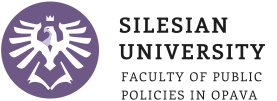Central European Papers, 2017 (vol. 5), issue 2
Editorial
EDITORIAL
Editors
Central European Papers 2017, 5(2):7 
Articles
Journalists in Parliaments. Three cases concerning the accessibility of legislatures in Central Europe
Péter SMUK
Central European Papers 2017, 5(2):11-26 | DOI: 10.25142/cep.2017.008 
In modern legislatures, the public nature of political debates has been achieved as a constitutional principle. Constitutions and parliamentary standing orders provide with possibilities for journalists and media to access to sittings of the legislatures in order to offer the public the information on issues debated in parliament. Against this normative background, this paper introduces three cases (from Macedonia, Poland and Hungary) where journalists’ work have been limited in legislatures for several reasons. The paper considers also the competing values of freedom of information, freedom of expression visa-vis the dignity and undisturbed...
The legal status of minorities and universities in inter-war Czechoslovakia
Jan KUKLÍK, René PETRÁ©
Central European Papers 2017, 5(2):27-37 | DOI: 10.25142/cep.2017.009 
Minority issues are still topical and their legal solution is complicated. Minority universities, which are an uncommon phenomenon, are a specific feature of this issue. While education in minority languages at elementary and even secondary schools is common, teaching in minority languages at the highest level of education is occurs infrequently. In the overall view of historical development, it is also necessary to recognize that colleges have traditionally been conceived as transnational, and Latin has been a common language in Europe from colleges’ medieval beginnings to modern times. In the Czech lands, however, minority universities originated...
University education and national minorities in South Tyrol
Harald Christian SCHEU
Central European Papers 2017, 5(2):39-48 | DOI: 10.25142/cep.2017.010 
For a long time, university education for national minorities has been a blind spot in minority research. The situation of university education in South Tyrol seems to be an exception, because in South Tyrol the question of higher education, for many years, has been the subject of intensive political and academic discussion. This discussion may be seen as paradigmatic since it includes both the concept of ethnic segregation and the concept of universality. In this paper, we focus on the legal basis and the praxis of university education in South Tyrol which is a compromise between ethnic segregation and multicultural universality. In recent years,...
The right of the citizens belonging to national minorities to education at universities in the Slovak Republic
Klaudia MARCZYOVÁ, Marián PIVÁČEK
Central European Papers 2017, 5(2):49-63 | DOI: 10.25142/cep.2017.011 
The authors of the article focus on fundamental rights and freedoms, and in particular on the current issue of the right to education and minorities in Slovakia. They draw on the essence and significance of the right to education as one of the most important rights. They elaborate on the related issues in the context of the right being asserted by the citizens of national minorities and place special emphasis on the right to education in the language of a national minority at a university. They introduce relevant legislation related to the subject matter, and point out the real possibilities of education and training of national minority citizens at...
Comparison of the international administration in Berlin and Vienna after World War II
Dávid MARÓTI
Central European Papers 2017, 5(2):65-77 | DOI: 10.25142/cep.2017.012 
The legal status of both Berlin and Vienna was unique following World War II. The Allies divided both cities into sectors, however their control mechanisms and allied administrations were different. Despite the Cold War, allied cooperation in Vienna was successful and territorial integrity of the city remained, though this was not the case in Berlin. Both cities had been detached from occupation zones and separate commands subordinated to allied military administration were set up for their operating. This working paper aims to present the post-war international administration and legal status of Vienna and Berlin, the circumstances causing the permanent...
Minorities and multicultural education at universities
Alexandra HOCHMANOVÁ
Central European Papers 2017, 5(2):79-86 | DOI: 10.25142/cep.2017.013 
The author addresses on a multidisciplinary platform and from the theoretical legal and philosophical legal perspective the issue of minorities and multicultural education at universities. Through its criticism she reveals the emptiness and confusion of the concepts of social sciences and humanitarian disciplines and brings to light the ‘asset stripping’ of the normative systems. Multiculturalism in the context of a value-based university education is presented as relativism applied in the field of the social sciences with repercussions on social engineering and complete transformation of cultural and social values. Her conclusions about...
Reviews
Jan KUKLÍK – René PETRÁ©; Minorities and Law in Czechoslovakia (1918–1992)
Ágnes BALÁZS
Central European Papers 2017, 5(2):89-91 
Prague: Karolinum Press 2017, 302 pages.ISBN 978-80-246-3583-5
Andor MÉSZÁROS – Ivan HALÁSZ – Pál Attila ILLÉS; Visegrádi Kézikönyv [The Visegrad Manual]
Renáta SOMOGYI
Central European Papers 2017, 5(2):93-95 
Esztergom: Szent Adalbert Közép- és Kelet-Európa Kutatásokért Alapítvány 2017, 405 pages.ISBN 978-963-89709-4-7


